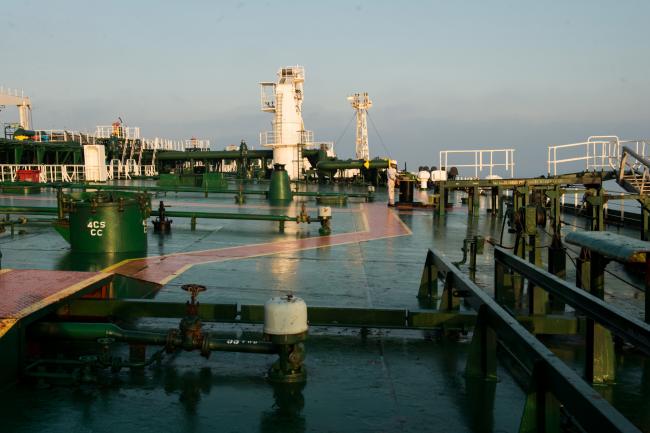(Bloomberg) -- Saudi Arabia offered extra crude volumes on top of its contractual supplies to some buyers in its most prized market as OPEC’s top producer opens its taps after unwinding a historical deal with its allies to curb output.
Saudi Arabian Oil Co. has pitched additional cargoes of its Arab Extra Light crude to at least two buyers in Asia for August, according to people with knowledge of the matter who asked not to be identified because the information is private. That’s beyond monthly contractual volumes from the state-run producer known as Saudi Aramco. Nobody immediately answered an email sent to the company’s press office outside regular business hours.
Saudi Arabia is making the offer at a time when investors are watching for any signs that it will step in to fill any potential supply gap caused by renewed U.S. sanctions on Iran, falling output in Venezuela and disruptions in Libya. The nation and Russia last month persuaded the Organization of the Petroleum Exporting Countries and its allies to boost output after 18 months of production curbs succeeded in shrinking a global glut and boosting prices to levels last seen in 2014.
Brent crude, the benchmark for more than half the world’s oil, lost as much as 0.8 percent to $74.76 a barrel and was trading at $74.89 at 5:21 a.m. in London. West Texas Intermediate, the U.S. marker, was down 0.6 percent at $70.60 in New York.
Trump Tweets
Saudi Arabia and OPEC have also come under pressure from U.S. President Donald Trump to do pump more as American gasoline prices increase. Some of its customers such as India have warned that higher prices will curb demand and hurt crude sales. And in China, Unipec -- the trading unit of the nation’s biggest refiner -- has cut purchases from the kingdom because it believes pricing for the supply is too expensive.
Earlier this month, the world’s top exporter also gave full contractual volumes to at least six Asian customers for August, while U.S. imports from Saudi Arabia jumped 51 percent in July. OPEC and its partners could increase production by more than the 1 million barrels a day agreed under a deal last month if needed, Russia’s Energy Minister Alexander Novak said.
Still, the group’s Gulf members may need to pump almost as much oil as they can to cover swelling output losses, according to the International Energy Agency.
Saudi Arabia’s compliance with OPEC’s output-cut deal fell to 26 percent in June, according to Bloomberg calculations from the producer group’s secondary source data. That’s the first time the kingdom has failed to comply with the agreement since it began in January 2017 and compares with an average compliance rate of 122 percent for the previous 17 months.
